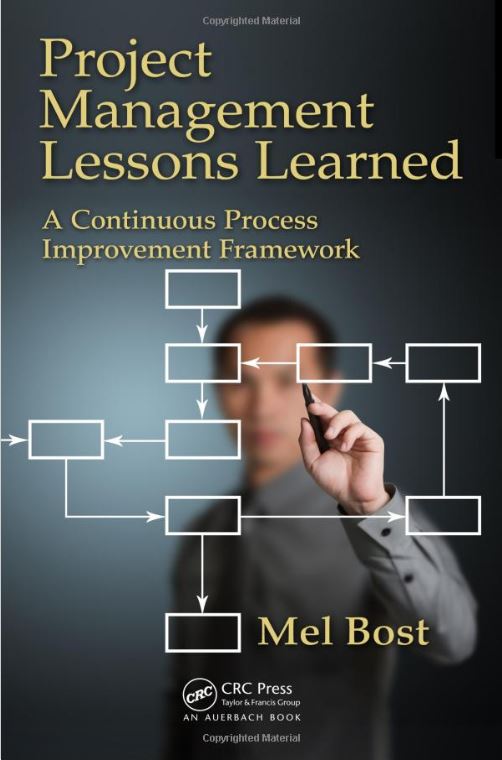When we were growing up, primary, middle, and secondary school were required because the State was assigned the responsibility for preparing children for “grown up” life. Our personal attitudes toward learning were formed during those years when we were progressing through the grades.
If a student had a bad experience with a teacher or with a subject, often that bad experience would carry over into adulthood as a negative attitude towards “learning” because that student associated learning with that bad experience.
On the other hand, those students who were very successful at navigating their “education” years often became life-long learners.
Now all this may seem very “elementary” to those of you who are engaged in project management today, but, if you really think back upon those school years, and then think about how you approach learning new project management practices and principles today, there is an immediate “transference” of attitudes from our early school experiences to our adult attitudes toward learning.
So what does this all have to do with whether you seek “training” and “learning” for project management practices in your day to day work?
Well, it means a great deal.
Those individuals who, during their formal training in project management, developed an attitude that they “learned all that needs to be known” often feel that way because they were turned off by the notion of revisiting grades and tests and unflinching teachers.
But nothing could be farther from the truth here!!!!
Let me “reframe” this perspective (as we say in project management).
Jillian Michaels, the extremely successful trainer from the hit TV show “The Biggest Loser,” believes that peoples’ capability to handle situations depends on how well they understand their own strengths and weaknesses, and how motivated they are to accomplish the task at hand. She says that “capability” depends, to a large part, on education regarding all factors and issues that impact a person’s ability–or lack thereof–to do the job. And since business contexts and interfaces with new people and new situations are arising all the time, it is really necessary to develop a “life-long learning” attitude about your goals and objectives. Jillian Michaels made these points in the May 2010 issue of “Success” magazine article and its accompanying audio CD.
Her bottom line is that empowering decisions by people, that move them forward to accomplish their goals and objectives, are the result of their personal education about the issues that make them capable to perform.
Read that sentence again: “Empowering decisions by people, that move them forward to accomplish their goals and objectives (in any walk of life), are the result of their personal education about the issues that make them capable to perform.”
Those who continue to view “education” and “learning” in the context of their bad primary, middle or secondary school experiences are destined to repeat mistakes and fail to prepare to take on life’s challenges. Indeed, the challenges facing a project manager in today’s modern corporation, especially those PMs working in a PMO environment, are continually changing as new interfaces, stakeholders, scope changes, cost/economic constraints arise.
Are you a project manager who looks at his own personal training in project management or at training for your team as just another cost to be managed? Is your attitude that “training” is a waste of time that you don’t need to allocate any resources towards? Do you think that training doesn’t impact project performance or execution capability? If you are, consider why you believe as you do–did you have a bad experience with “education” or “training” and/or the formal training mechanisms that were forced on you? Or did someone tell you that getting that Mechanical Engineering degree meant you’d never have to study again?
If you have such an attitude, you are shortchanging your project team, your company and especially YOURSELF!!!! Wake up to the reality that changing circumstances and situations and issues in projects and the PMO require new solutions. These new solutions often may have already been developed by someone else who has encountered and successfully solved the mystery or problem at hand.
Confucius once said:
“By three methods we may learn wisdom:
First, by reflection, which is noblest.
Second, by imitation, which is easiest.
Third, by experience, which is bitterest.”
Develop that life-long learning attitude. Embrace everything you can from successful people and their approaches to problems. Immerse yourself in “learning” so that you can draw on the experiences of others. Cast off those attitudes that “training” and “learning” are just another cost to be managed. Or else….
….the bitterest feelings will be your experience.
Your comments are welcome.


nice post. thanks.
Thanks so much for your comment. Hope you keep reading and enjoy.
I agree with you that lifelong learning is critical to future success. This especially so when the world changes so fast! What we know now may be obsolete in a few years from now. We certainly aren’t smart enough to see more than 5 years in the future and don’t know of what’s ahead. It’s true that the desire to learn is developed early as I see that with my boys.